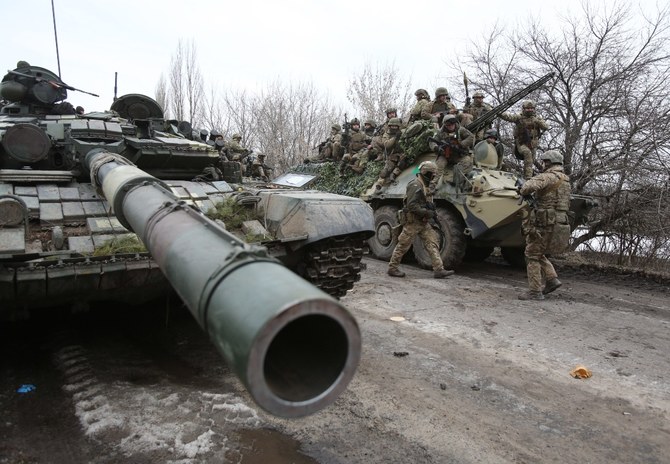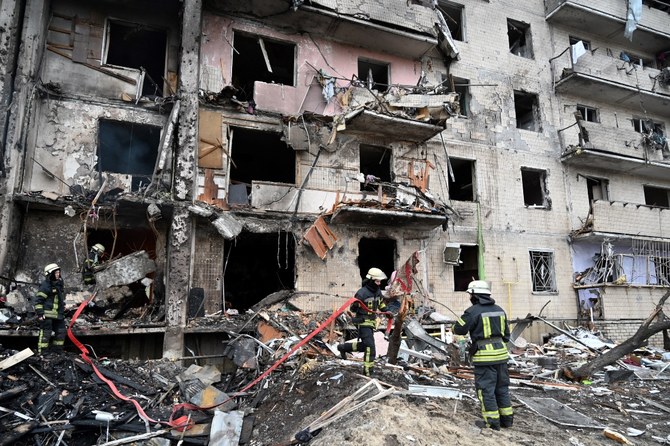DUBAI/LONDON/JEDDAH: Russian President Vladimir Putin on Friday offered talks to end the war in Ukraine, and urged the Ukrainian military to seize power and make peace.
“I appeal to the military personnel of the armed forces of Ukraine, do not allow neo-Nazis … to use your children, wives and elders as human shields,” Putin said. “Take power into your own hands, it will be easier for us to reach agreement.”
The Kremlin said it had offered talks in the Belarusian capital, Minsk, but that Ukraine had proposed Warsaw instead and there was now a “pause” in contacts.
A spokesman for President Volodymyr Zelenskiy said Ukraine was prepared for talks with Russia, including the issue of staying neutral, a demand by Moscow before Russia invaded Ukraine early on Thursday.
Meanwhile, Russian missiles pounded Kyiv, families cowered in shelters and Ukrainian authorities told people to prepare petrol bombs to defend their capital. Moscow said it had captured the Hostomel airfield northwest of the capital, a potential staging post for an assault on Kyiv.
“Shots and explosions are ringing out in some neighborhoods. Saboteurs have already entered Kyiv,” said the city’s mayor, former world heavyweight boxing champion Vitali Klitschko. “The enemy wants to put the capital on its knees and destroy us.”
Zelenskiy said there had been heavy fighting with people killed at the entrance to the eastern cities of Chernihiv and Melitopol, as well as at Hostomel.
There were loud explosions and gunfire near the airport in Kharkiv, Ukraine’s second city, close to Russia’s border, and air raid sirens sounded over Lviv in the west. Authorities reported heavy fighting in the eastern city of Sumy.
Air raid sirens wailed over Kyiv for a second day, and some residents sheltered in underground metro stations. Windows were blasted out of a 10-story apartment block near the main airport. A two-meter crater showed where a shell had struck before dawn.
“How can we be living through this in our time? Putin should burn in hell along with his whole family,” said Oksana Gulenko, sweeping broken glass from her room.
The EU froze European assets held by Putin and Russian Foreign Minister Sergei Lavrov, adding to a raft of sanctions imposed at an emergency summit on Thursday.
Numerous Western countries have imposed new sanctions on Russia, including blacklisting its banks and banning technology imports. But they have so far stopped short of forcing it out of the SWIFT system for international bank payments, drawing criticism from Kyiv which says there is no reason to hold back.
US officials believe Russia’s initial aim is to “decapitate” Zelenskiy’s government. Zelenskiy said he knew he was “the number one target” but vowed to stay in Kyiv.
Here is a live update of the main developments in Ukraine as they happen. (All timings are in GMT)
02:25: Russian troops have attacked a Ukrainian army base in Kyiv and the attack was repelled, according to Ukrainian military. 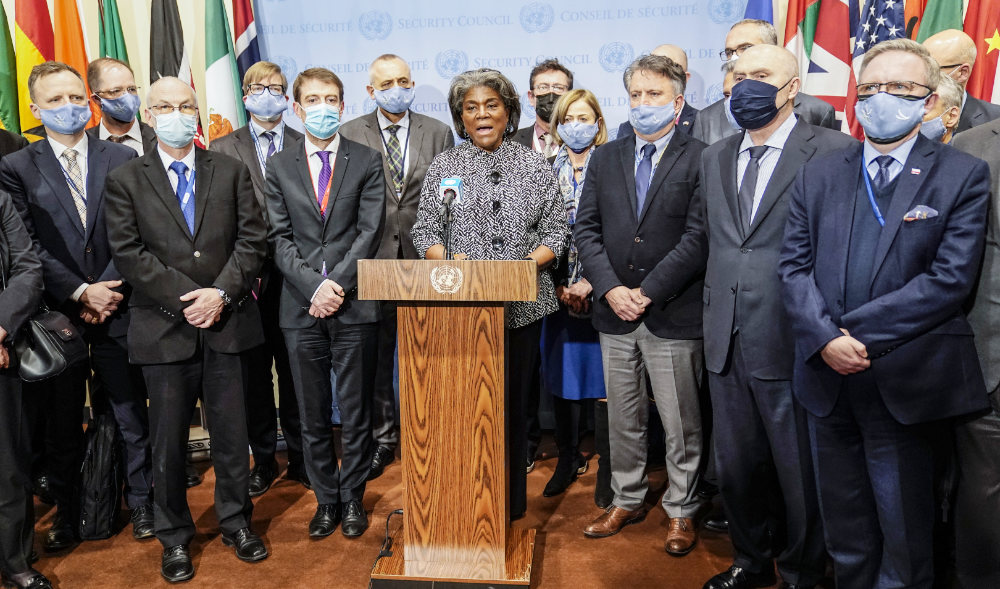
01:05: Russia vetoed a UN Security Council resolution on Friday demanding that Moscow immediately stop its attack on Ukraine and withdraw all troops, a defeat the United States and its supporters knew was inevitable but said would highlight Russia’s global isolation.
The vote was 11 in favor, with Russia voting no and China, India and the United Arab Emirates abstaining, which showed significant but not total opposition to Russian President Vladimir Putin’s invasion of his country’s smaller and militarily weaker neighbor. Read more.
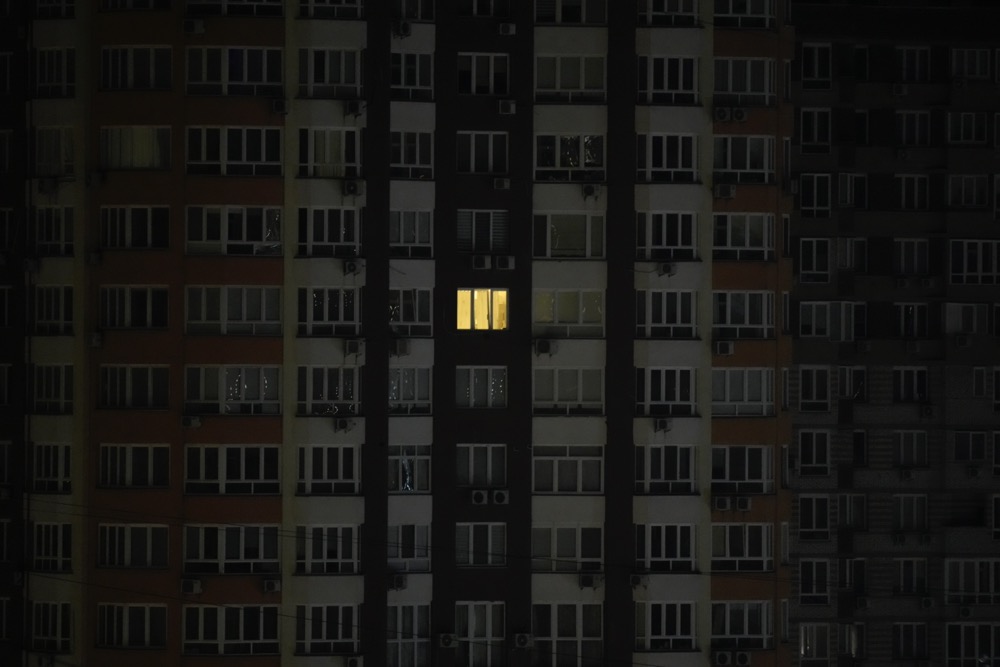
An illuminated window of a residential building with the lighting turned off for safety reasons, in the city of Kyiv, Friday, Feb. 25, 2022. (AP)
00:36: As Russian troops enter Kyiv, citizens of other countries living in Ukraine have been trying to leave and get back home.
• ‘You’re on your own’: African students stuck in Ukraine seek refuge or escape route. Read more.
• Parents, state governments, opposition urge Modi to ensure safe return of loved ones. Read more.
00:20: UN Secretary-General Antonio Guterres called on soldiers in Russia's war on Ukraine to "return to their barracks" Friday.
"We must never give up. We must give peace another chance," he told reporters after Moscow vetoed a UN resolution condemning its "aggression" in Ukraine.
00:05: Australia seeks to join others in imposing direct sanctions on Russian President Vladimir Putin and has extended its punitive financial measures to members of Russia's parliament and more oligarchs, Foreign Minister Marise Payne said on Saturday.
00:00, Saturday Feb. 25: Ukraine UN envoy says we have to persevere tonight, the fate of Ukraine is being decided right now.
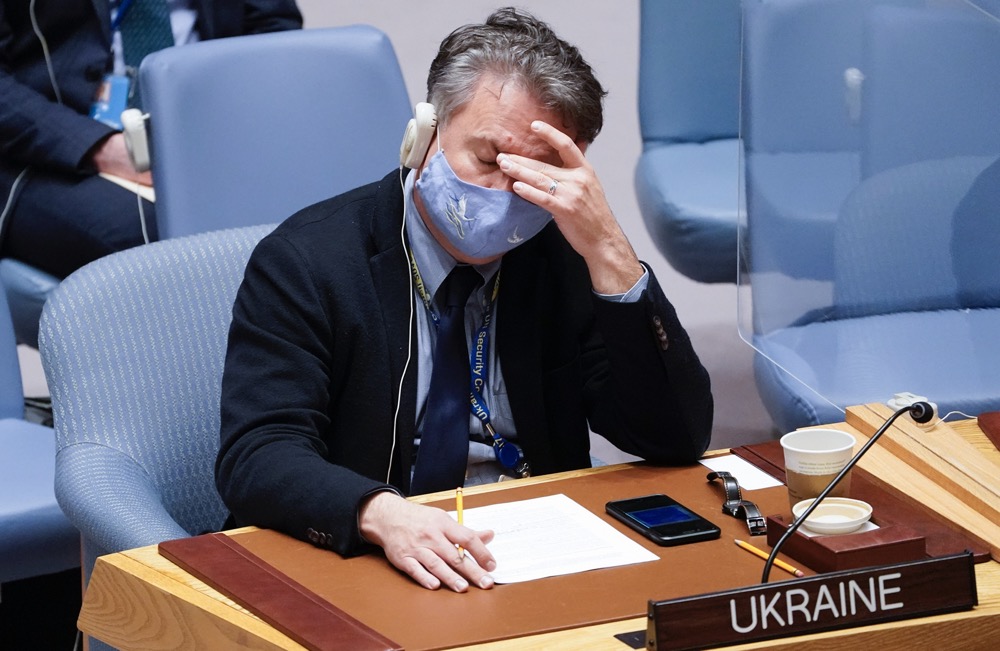
23:40: Ukraine’s President Volodymyr Zelensky warned Saturday that Russian troops would attempt to take the capital Kyiv before dawn.
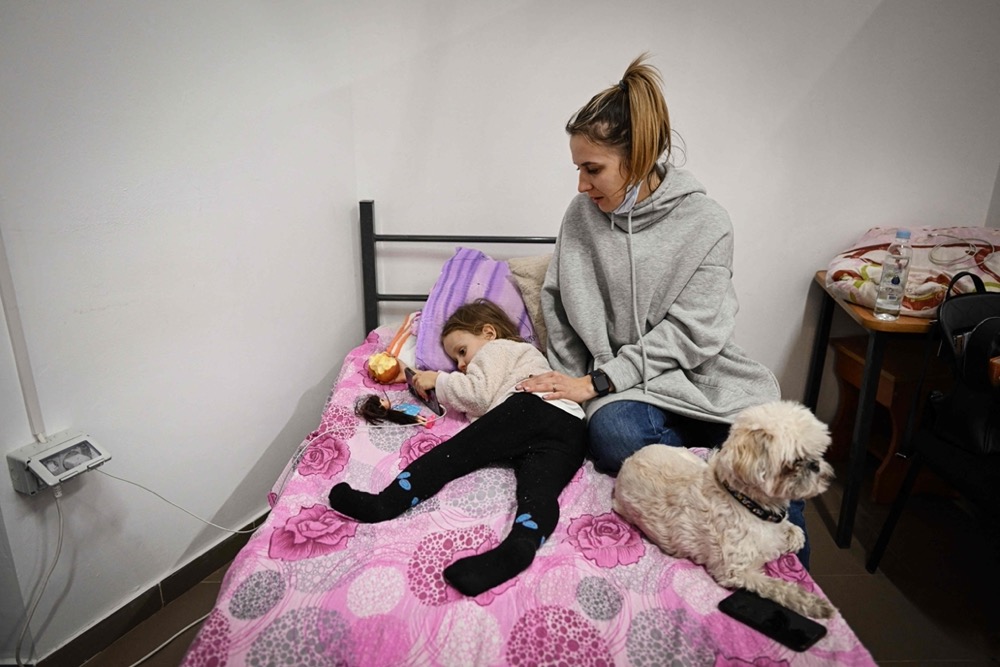
An Ukrainian mother conforts her child at an improvised shelter on a local high school after they entered Romania (AFP).
23:30: Russia’s UN envoy says Russian troops are not bombing Ukrainian cities.
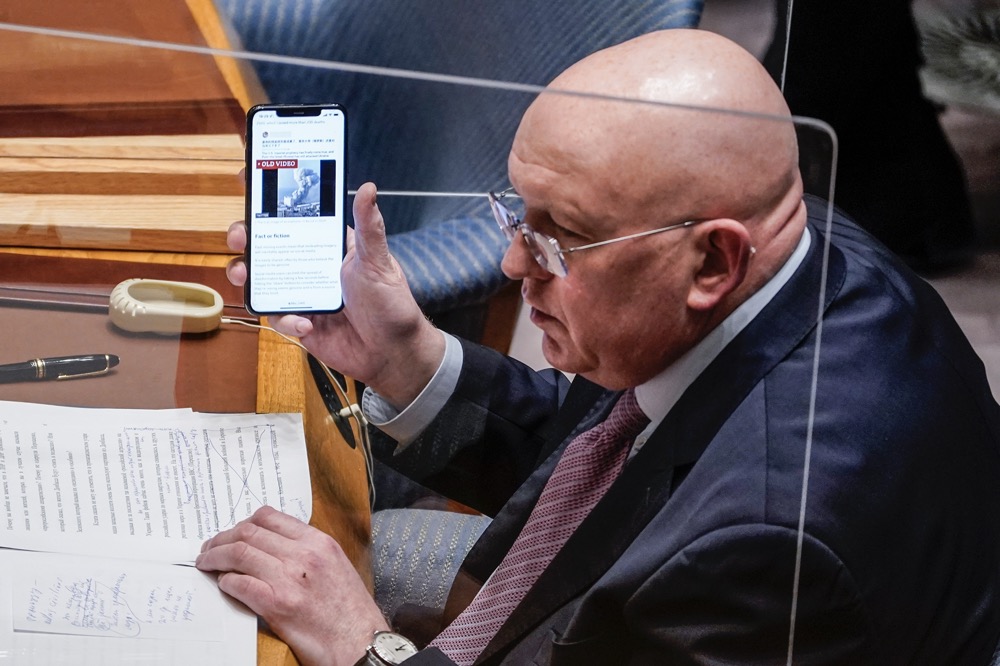
Vassily Nebenzia, Russia’s United Nations Ambassador and current president of the United Nations Security Council, shows a phone image as he address the UN Security Council. (AP)
19:25: US Secretary of State Antony Blinken spoke on Friday with his Ukrainian counterpart and condemned reports of mounting civilian deaths, including those of Ukrainian children, due to attacks around Kyiv, a State Department spokesperson said.
“The Secretary also emphasized to (Ukraine) Foreign Minister Kuleba that the United States would continue to provide support to Ukraine to help it defend itself against Russian aggression,” spokesperson Ned Price said.

US State Department Spokesman Ned Price speaks during a media briefing on Friday. (Screenshot/State Dept.)
18:51: Germany will send a company of troops to Slovakia that will build part of a new NATO battlegroup to be established there, German Defense Minister Christine Lambrecht said.
18:35: Pope Francis in a Russian language tweet denounced the ills of conflict.
“Every war leaves our world worse than it was before. War is a failure of politics and of humanity, a shameful capitulation, a stinging defeat before the forces of evil,” he wrote in separate English and Russian tweets.
18:34: The secretary-general of the Organization for Economic Co-operation & Development (OECD) said on Friday the OECD had decided to end Russia’s process of acceding to the OECD.
18:28: The organization Of Arab Petroleum Exporting Countries (OAPEC) affirmed in a statement the keenness of Arab countries exporting natural gas, especially liquefied natural gas, to provide gas supplies to their customers to ensure the stability of global markets, in its first reaction to the ongoing Ukrainian crisis.
18:15 - UN aid chief Martin Griffiths said the organization was concerned about the huge population movement the invasion would cause, citing “hundreds of thousands of people on the move as we speak.”
He added that even before this week's invasion, 3 million Ukrainians were already in need of humanitarian assistance due to eight years of conflict in the country.
Griffiths said that while there are no plans to relocate UN staff outside Ukraine at the moment, he was worried about the impact of Western sanctions on UN operations; adding that “north of a billion dollars” would be needed for aid in Ukraine over the next three months.
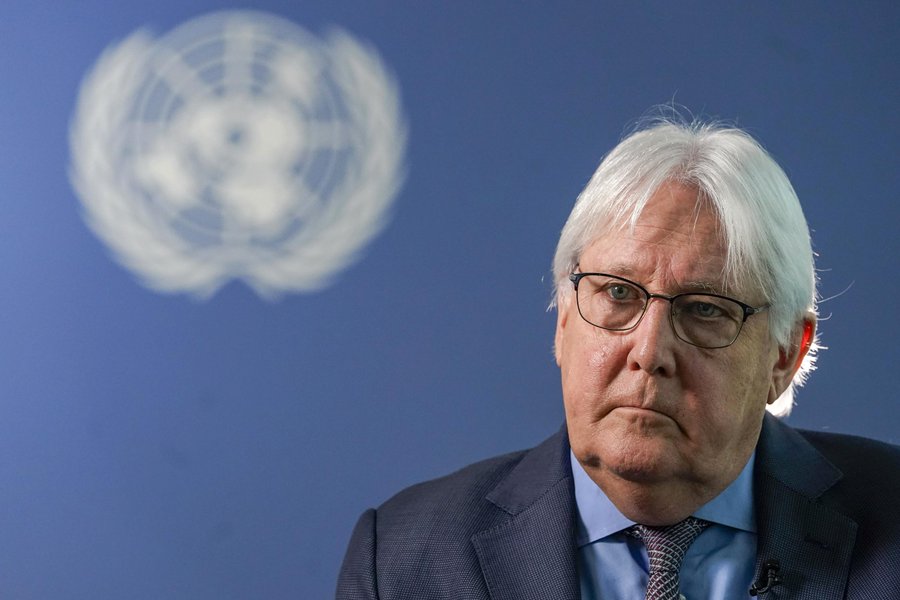
UN relief chief Martin Griffiths said there are no plans to relocate UN staff outside Ukraine for the moment. (UN/File Photo)
18:07: The European Union does not plan an imminent next package of sanctions against Russia, but is ready to supplement measures already announced subject to Russian activity and EU consensus, EU foreign policy chief Josep Borrell said.
The idea is, if it’s necessary to do more and we identify actions on the Russian side, if we have identified consensus around more measures, they will be taken,” Borrell told a news conference after a meeting of EU foreign ministers.
17:48: British Prime Minister Boris Johnson called on leaders of NATO member countries to use the SWIFT international payments system to damage Russian President Vladimir Putin and members of his government.
17:46: NATO Secretary-General Jens Stoltenberg said that US President Joe Biden and his counterparts have agreed to send parts of the organization’s response force to help protect allies in the east.
16:39: Ukraine’s central bank transferred around $650 million to the state budget, to be used for military purposes and to cover other state needs, Russian state TASS news agency reported.
16:31: The European Broadcasting Union said no act from Russia will be permitted to take part in this year’s Eurovision Song Contest.
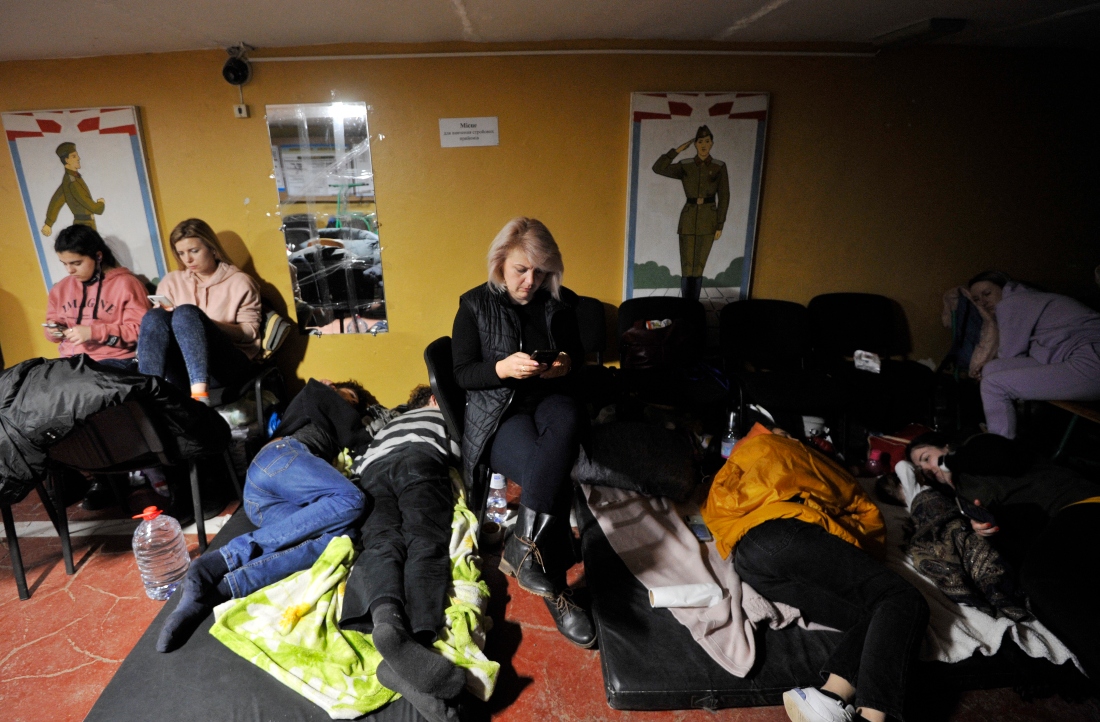
People hide in a bomb shelter in Kyiv in the early hours of Feb. 25, 2022, as invading Russian forces pressed deep into Ukraine. (Sergei Chuzavkov/AFP)
16:15: Ukraine’s health minister accused Russian troops of firing on ambulances in the Zaporizhzhya and Chernihiv regions.
15:47: The Council of Europe said that it is suspending all representatives of Russia from participation in the pan-European rights body.
Permanent representatives of its 47 member states “agreed to suspend the Russian Federation from its rights of representation in the Council of Europe,” invoking Article 8 of its statute, the body said in a statement.
15:00: The International Olympic Committee, angry at the Russian invasion of Ukraine breaching the ‘Olympic Truce’, urged all international sports federations to cancel their forthcoming events in Russia.
14:45: France is in favor of excluding Russia from the global SWIFT interbank system but other European states have “reservations” about using such a “financial nuclear weapon,” Finance Minister Bruno Le Maire said.
14:24: The EU’s foreign policy chief said he has urged China to use its influence with Moscow to respect the Ukraine’s sovereignty, adding that if the UN General Assembly fails to condemn Russia’s invasion of Ukraine it is “the law of the jungle.”
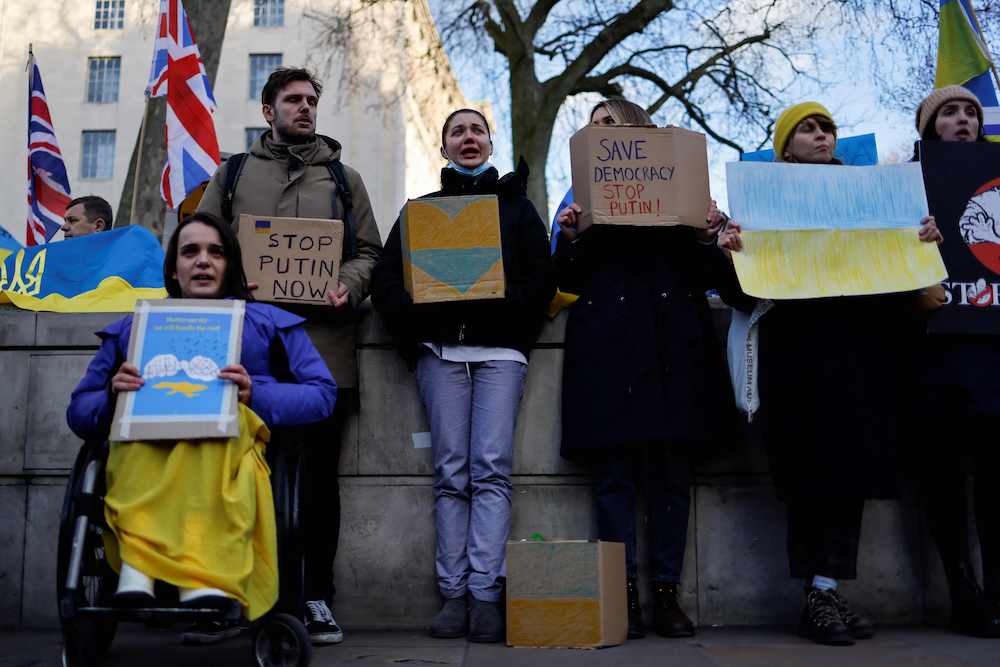
Demonstrators hold placards and chant as they take part in a rally staged in front of the Downing Street gates, in central London, on Feb. 25, 2022 to protest against Russia's invasion of Ukraine. (AFP)
14:03: British Prime Minister Boris Johnson urged more support for Ukraine as a matter of “the greatest urgency” in a meeting with a group that includes the Baltic states, a spokesperson for his office said.
“The leaders agreed that more sanctions were needed, including focusing on (Russian) President Putin’s inner circle, building on the measures that had already been agreed,” a Downing Street spokesperson said after the Joint Expeditionary Force (JEF) meeting.
13:50: Luxembourg’s Foreign Minister Jean Asselborn expects an EU meeting in Brussels on Friday to reach an agreement over asset freezes targeting Russia’s President Vladimir Putin and Foreign Minister Sergey Lavrov.
13:30 - With Russian forces in neighbouring Syria, Washington its unswerving ally and about a million citizens with ties to the former Soviet Union, Israel is seeking a delicate balance in the Ukraine crisis.
For residents of Bat Yam, just south of Tel Aviv and home to many Jews with roots in Russia and Ukraine, the Russian invasion launched Thursday triggered shock and concern for relatives.
“I didn't expect it, when I got the message from my parents (in Ukraine),” said Natalia Kogan.
“People are stressed,” added the 57-year-old, who works at a supermarket catering for people from the former USSR
12:35: Formula One cancels the 2022 Russian Grand Prix, saying it was “impossible” to do so after the country launched an invasion on Ukraine. Read the story in full
12:14: Pope Francis went to the Russian Embassy to “express his concern about the war,” an extraordinary, hands-on papal gesture that came on the same day the Vatican announced he was canceling other upcoming events because of an “acute” flareup of knee pain. See the story here.
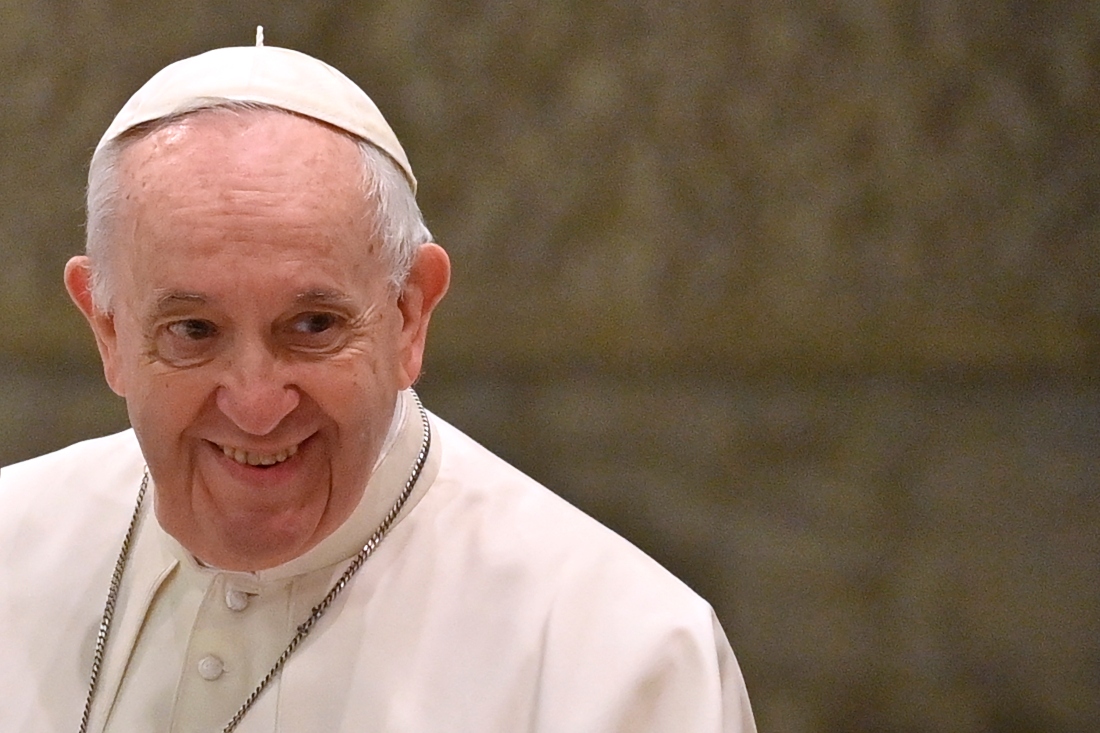
10:30: The Kremlin says UEFA’s decision to strip Russia’s second city Saint Petersburg of hosting the Champions League final is a “shame.” See the story here
10:22: The Kremlin says Russia will retaliate against Western sanctions imposed since the invasion.
The news comes as the EU prepares more sanctions against Russia.
10:02: UN condemns the more than 1,800 arrests of anti-war protesters in Russia.
10:00: Saint Petersburg is stripped of hosting this season’s Champions League final after Russia’s military invasion of Ukraine. Read the story here.
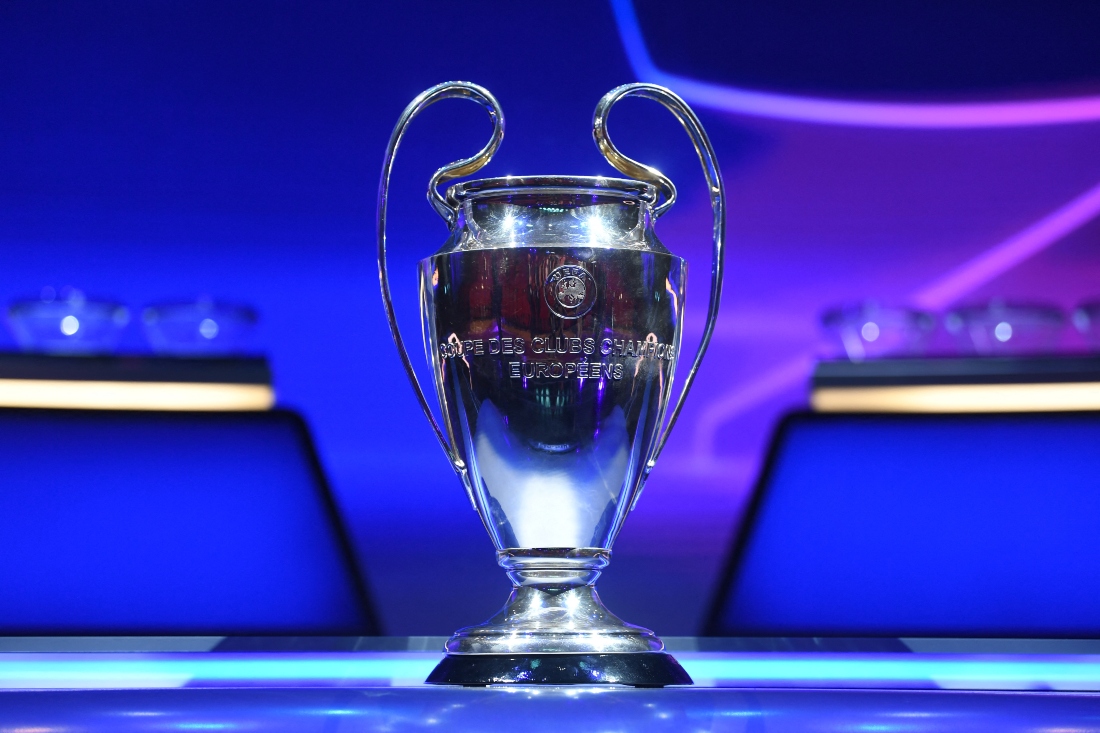
(FILE/AFP)
09:58: Loud blasts heard in east Ukrainian city of Kharkiv.
09:15: Gunfire heard near government district in Ukrainian capital city of Kyiv.
08:57: 82 Ukrainian soldiers surrender in the Black Sea region: Al Arabiya reports citing the Russian Defense Ministry.
08:38: Russia bans British airlines from entering its airspace, including transit flights.
08:21: The Russian defense ministry says it shot down 5 Ukrainian fighterjets and 5 drones.
08:04: Russia’s defense ministry says it will deploy paratroopers to guard Chernobyl power plant, which it took control of on Thursday.
08:03: Russia’s defense ministry says it has destroyed 118 Ukrainian military sites.
07:40: Ukraine army says it is fighting Russian forces outside the capital city
07:13: Federated States of Micronesia breaks ties with Russia over Ukraine war.
07:10: UK Defense Secretary Ben Wallace says Russian army has failed to deliver on day 1, adding that it had taken any of its major objectives.
And he said it was estimated that Russia had lost over 450 military personnel. Read the story here
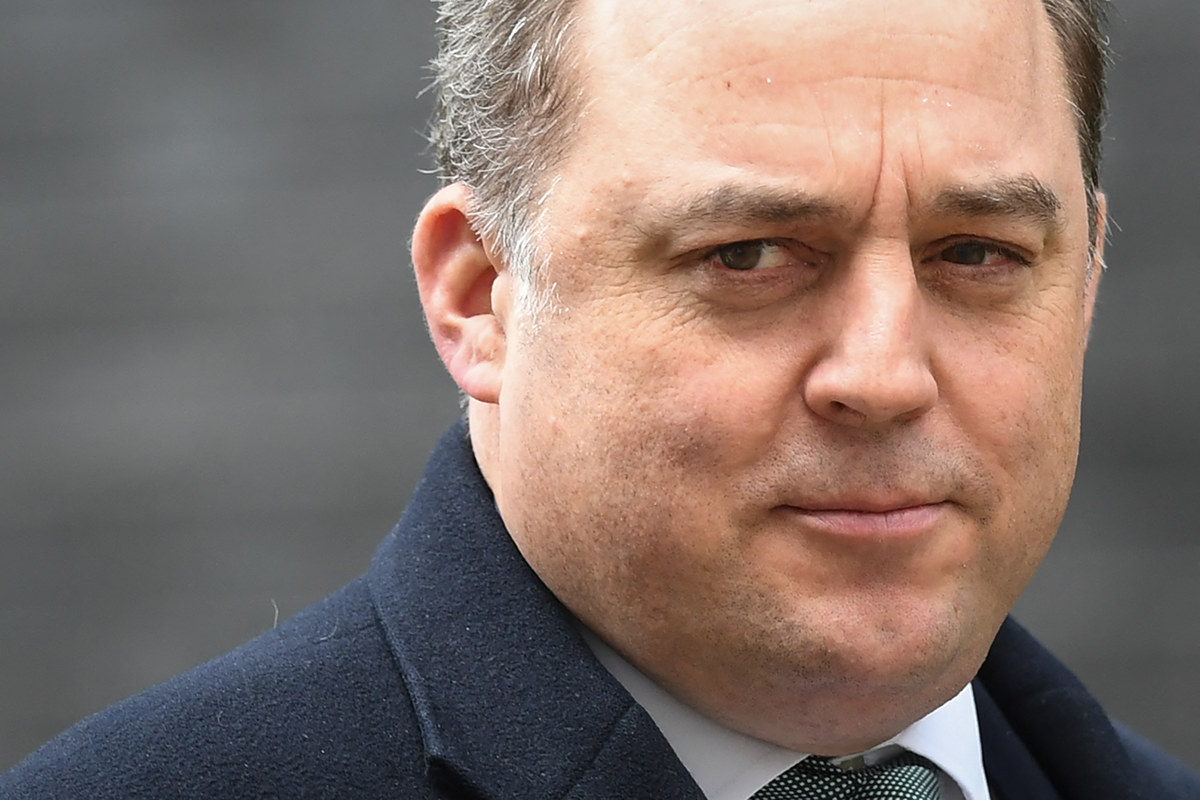
UK Defense Secretary Ben Wallace. (File/AFP)
06:24: Ukrainian President Zelensky says in a tweet that hjs country needs “effective international assistance.”
06:18: Ukrainian President Zelensky hails his people for their ‘heroism’ in face of Russian advance and urges Russians to protest against #Ukraine war.
He says Russia will have to talk ‘sooner or later.’
05:42: Ukrainian President Zelenskiy says the new sanctions have not convinced Russia to stop its invasion.
05:19: Ukrainian President Zelenskiy says Russia resumed its missile strikes at 4 a.m. local time on Friday.
He added that the Russian strikes were fired on both military and civilian targets.
And he said Russian troops had been stopped from advancing.
04:47: Ukraine’s foreign minister Dmytro Kuleba slams what he described as the ‘horrific’ Russian rocket strikes on Kyiv.
04:29: Ukraine’s Central Bank bans operations with Russian ruble, Belarusian ruble
03:38: A Russian missile strike hit a Ukrainian border post in the southeastern region of Zaporizhzhya, killing several guards and wounding others, the border guard service said on Friday.
The region has no land border with Russia.
03:30: Sirens rang out in the western Ukrainian city of Lviv early on Friday, a Reuters witness said.
Kyiv has reported dozens of casualties and hundreds of wounded.
The capital Kyiv came under attack on Friday morning, while a missile hit the airport in the city of Rivne in western Ukraine, its mayor said.
03:30: Ukraine says the number of downed Russian fighter planes has reached 16.
03:25: A Ukrainian fighter plane crashes into a residential building in Kyiv, erupting in a ball of flames: the Ukrainian interior ministry said.
02:40 Explosions heard in the Ukrainian capital Kyiv.
02:31: New US sanctions hit Russian banks, elites; EU list cover financial, energy and transport sectors. Read here.
01:45: French President Emmanuel Macron said the Russian President Vladimir Putin wants to bring us back to age of empires and confrontations.
He held a “frank, direct and quick” phone call with the Russian leader on Thursday to ask him to stop military operations because the Ukrainian President Volodymyr Zelenskiy had asked him to.
The French president said there was duplicity on the part of the Russian president, but said it was important to keep the path open for dialogue with Putin.
Speaking at an emergency EU summit in Brussels, Macron said that the bloc was more than just a market of consumers and needed to be a power with energy and defense sovereignty.
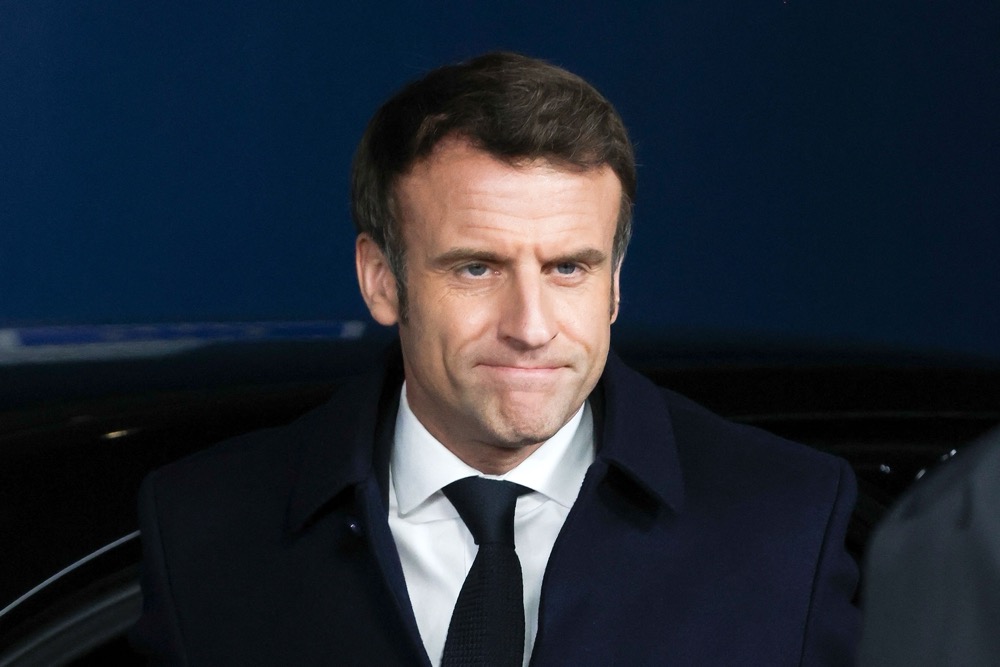
France’s President Emmanuel Macron arriving for an emergency European Union summit. (AFP)
01:40: The President of the European Commission Ursula von der Leyen says steps agreed by EU leaders in reaction to the Russian invasion of Ukraine include financial sanctions, targeting 70% of the Russian banking market and key state owned companies, including in defense. She said the EU will hold the Kremlin accountable.
01:00: US Secretary of State Antony Blinken says he has discussed the situation in Ukraie with the UAE foreign minister Abdullah bin Zayed Al-Nahyan.
00:29: Prime Minister Morrison said that Australia will impose further sanctions on Russian individuals.
He also said that its is unacceptable that china is easing trade restrictions with Russia at this time.
00:24, Friday Feb. 25: US Treasury added five more Russian banks to the sanctions list including country's the two largest, both majority owned by the government, although each faced penalties with differing severity.
— with input from agencies


